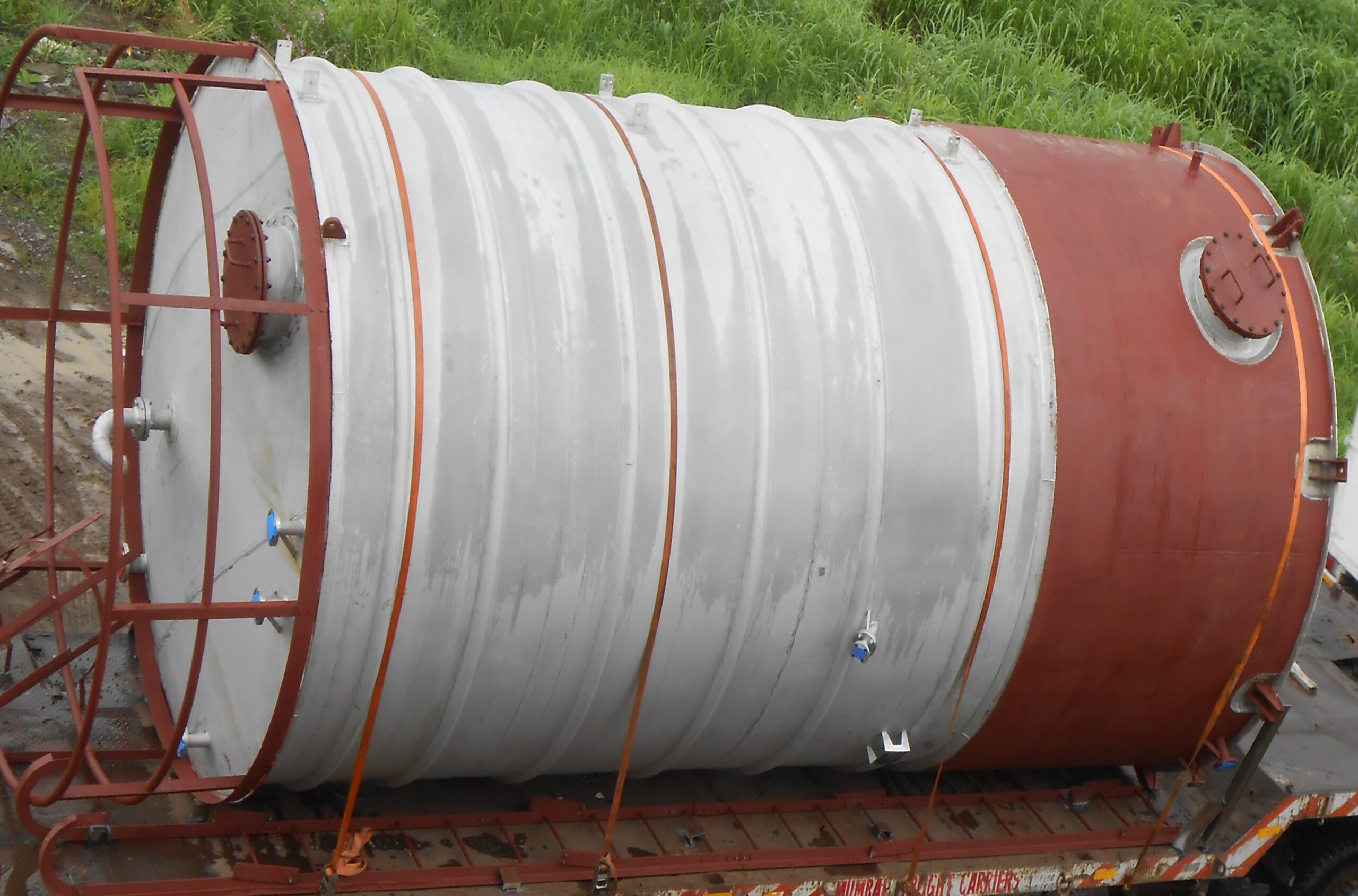Storage Tank
When it comes to storing liquids, chemicals, and other substances in industrial settings, storage tanks play a crucial role in ensuring safe and efficient containment. These tanks are commonly used in various industries such as oil and gas, chemical processing, water treatment, and food and beverage production. The fabrication and manufacturing of storage tanks involve a series of specialized processes to create durable, reliable, and customized solutions tailored to specific storage requirements.

Fabrication of Storage Tanks
The fabrication process begins with careful design and engineering to determine the tank’s capacity, dimensions, material of construction, and structural requirements. Advanced design software and engineering expertise are employed to create detailed blueprints and specifications.
Storage tanks can be constructed from a variety of materials such as carbon steel, stainless steel, aluminum, fiberglass, and reinforced plastics. The choice of material depends on factors like the stored substance, operating conditions, and regulatory requirements.
The selected material is cut to size using precision cutting techniques such as laser cutting, plasma cutting, or water jet cutting. The sheets or plates are then formed and shaped into the desired tank structure using bending, rolling, and welding processes.
Skilled welders utilize various welding techniques like MIG (Metal Inert Gas), TIG (Tungsten Inert Gas), or submerged arc welding to join the tank components together. Proper welding procedures are followed to ensure structural integrity and leak-proof seams.
Manufacturing of Storage Tanks
During the manufacturing process, quality control measures are implemented to ensure that the tank meets industry standards and regulatory requirements. Non-destructive testing methods such as ultrasonic testing and visual inspections are conducted to detect any defects.
Surface preparation techniques like sandblasting, shot blasting, or chemical cleaning are employed to remove impurities, scale, and contaminants from the tank surfaces. This helps to achieve proper adhesion of protective coatings and paint.
Protective coatings and linings are applied to the interior and exterior surfaces of the storage tank to prevent corrosion, chemical attack, and environmental damage. Common coatings include epoxy, polyurethane, and powder coatings tailored to the stored substance.
Manufacturing of storage tanks also involves the installation of various accessories and fittings such as manways, nozzles, vents, gauges, and level indicators. These components enhance the functionality and ease of operation of the tank.
Benefits of Custom Fabricated Storage Tanks
Custom fabrication allows for the creation of storage tanks with specific dimensions, capacities, and features to meet the unique storage requirements of each customer.
Fabricated storage tanks are built to withstand harsh operating conditions, environmental factors, and corrosion, ensuring long-term reliability and performance.
Tanks fabricated in accordance with industry standards and regulatory guidelines help businesses maintain compliance with safety, environmental, and quality regulations.
Custom fabrication offers cost savings by eliminating the need for retrofitting or modifying standard tanks to fit specific needs, reducing downtime and operational disruptions.
Applications of Fabricated Storage Tanks
Fabricated storage tanks are commonly used for storing crude oil, refined petroleum products, and chemicals in oil refineries, terminals, and petrochemical plants.
Chemical manufacturers utilize fabricated storage tanks to store acids, solvents, caustic solutions, and various chemicals for production processes.
Fabricated tanks play a vital role in water treatment plants for storing potable water, wastewater, chemicals, and sludge during treatment processes.
Stainless steel tanks are fabricated for storing liquids such as milk, beer, wine, and other food-grade substances in the food and beverage industry.
Fabricated storage tanks are used in pharmaceutical and biotech facilities for storing pharmaceutical ingredients, purified water, and sterile solutions.

Conclusion
The fabrication and manufacturing of storage tanks involve a systematic process of design, material selection, fabrication, quality control, surface treatment, and coating to produce high-quality and customized storage solutions. By partnering with experienced tank fabricators, businesses can obtain durable, reliable, and compliant storage tanks tailored to their specific needs. These custom fabricated tanks play a critical role in ensuring the safe and efficient storage of liquids and substances across a wide range of industries.
